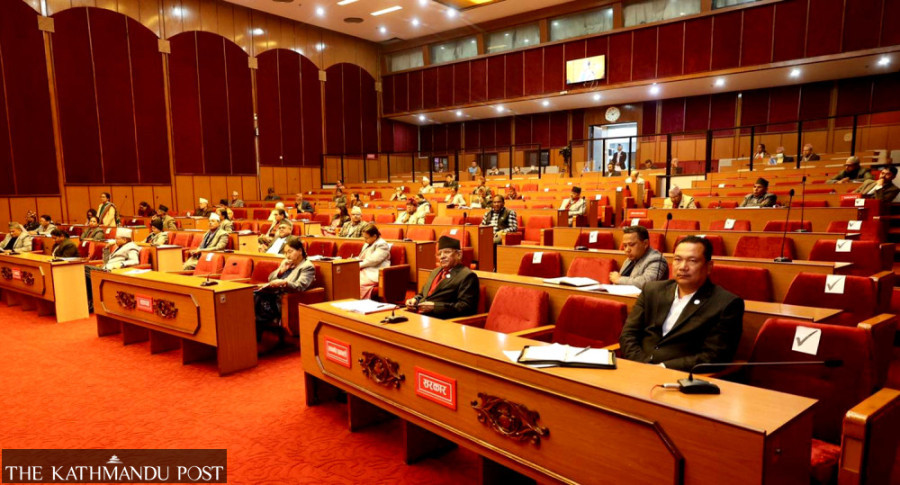Editorial
Enfeebled assembly
The upper house of Parliament is not being allowed to play its desired role.
The National Assembly is the country's ‘permanent chamber’. A new batch replaces a third of its 59 members every two years. The assembly remains in place even when there is no lower house, the House of Representatives, for instance, when it is dissolved before its scheduled time or at the expiry of its term. This presence of an upper chamber keeps the country from falling into a legislative vacuum. The upper house is also a chamber of experts, a place where experts in different fields are sent, so that they can use their collective knowledge for the country’s development and protection of its interests. It also has a concomitant function: To ensure the presence of communities that are not adequately represented in the lower house. But most of the 19 members who were sworn in on Sunday were neither field experts, nor did they represent marginalised communities. For instance, among them, there were no male Madhesi, Tharu or Muslim members. Even the one male elected from Madhesh Province was from the Khas-Arya community.
Of the 59 upper house seats, 56 are elected. Each province elects eight representatives, including at least three women, one Dalit and one representative from among persons with disabilities or from minorities. Electing them is an electoral college of provincial assembly members, chairs and vice-chairs of rural municipalities, and mayors and deputy mayors of municipalities, metropolis and sub-metropolis. But if neither experts nor members of the marginalised communities are being picked, one wonders, what is the use of a chamber packed with those close to powerful leaders? If the argument is, again, that the assembly is mandatory to prevent a legislative vacuum, the upper house is bypassed at those times of vacuum. For instance, after KP Oli dissolved the lower house on May 22, 2021, it brought the annual budget through an ordinance. Curiously, the budget was announced in a hall of the National Planning Commission. Perhaps the constitution could be amended to allow the government to present the budget in the upper house in such a case. The laws also curtail the National Assembly’s powers in various ways, including by not giving it enough time to deliberate on vital bills.
One can go overboard with the argument for the assembly’s empowerment. This is, after all, not a body directly elected by the sovereign people. But as the country has decided to have the upper house, at a considerable cost, it would be wise to make the best use of it. There can be plenty of tweaks in its working mechanisms. Yet, any change must start with the realisation on the part of the political parties that the assembly is not a place for the management of disgruntled leaders and cadres. In fact, such persons are uniquely unfit for the assembly. What the assembly needs are strong-minded experts who can work independently of the political parties in power. This is vital as its members have the luxury of focusing on the entire country, while the lower house members have to deal with the daily stream of demands from their constituencies. But, then, are the leaders of our political parties capable of looking beyond their immediate interests and cultivating such a broad national vision?




 16.12°C Kathmandu
16.12°C Kathmandu














